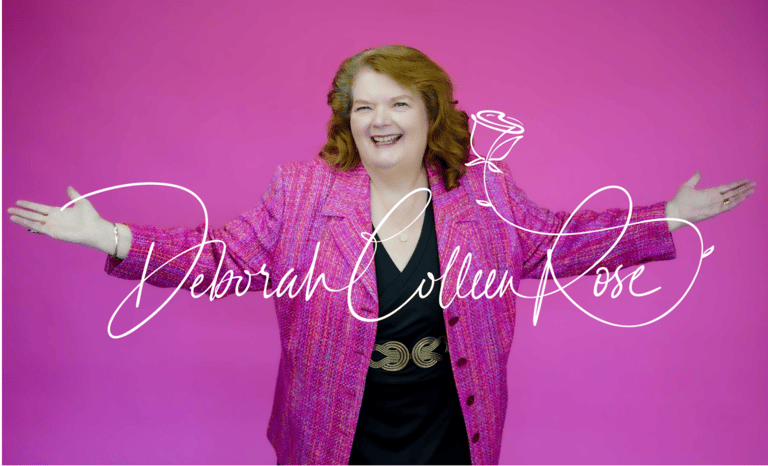Is It a Mental Disorder or Just a Lack of Character?
Blog post description.
RELATIONSHIPS
Deborah Colleen Rose
10/19/20253 min read
When People Misinterpret Character Issues as Narcissism or Personality Disorders
Ever been hurt by someone and found yourself Googling, “Am I dealing with a narcissist?” You’re not alone.
In a world where everyone seems to have a label, it’s easy to confuse bad behavior with a diagnosable disorder. But not every difficult person has a personality disorder—some just have poor character.
The Rise of Pop Psychology
Thanks to platforms like TikTok, Instagram, and YouTube, psychological terms have gone mainstream. That’s not all bad—it means more awareness, less stigma, and easier access to mental health conversations.
But here’s the downside: now, every ex is a narcissist, every manipulative person is a “toxic” sociopath, and every disagreement gets framed as emotional abuse.
The lines between mental illness and moral failure are getting blurred—and that can be harmful, not just to the people being labeled, but also to those trying to make sense of their pain.
Narcissism vs. Narcissistic Personality Disorder
Let’s clear something up:
We all have narcissistic traits. Healthy narcissism helps us take pride in ourselves, set boundaries, and survive in a competitive world.
Narcissistic Personality Disorder (NPD), though, is very different. It’s a diagnosed mental health condition involving:
A long-standing pattern of grandiosity,
A constant need for admiration, and
A significant lack of empathy,
…across many areas of life and over time.
Someone being selfish, rude, or self-absorbed now and then isn’t necessarily disordered. It might just be poor behavior—or a sign of emotional immaturity.
When It’s Not a Disorder—It’s Character
Some people aren’t mentally ill—they’re just unkind, immature, or unwilling to grow.
Think of it like this:
They lie not because of trauma, but because they don’t want to be held accountable.
They gaslight because they don’t want to look bad—not because they lack emotional capacity.
They show no empathy, not because of a deep psychological condition, but because they choose not to care.
That’s not mental illness. That’s character.
Relatable Examples to Consider
Still unsure where the line is? Let’s break it down:
The Credit-Stealer at Work: Always takes the spotlight, never admits mistakes. Disorder? Maybe. But possibly just entitled and insecure.
The Blame-Shifting Partner: Never apologizes, always flips the script. Could be manipulative—not necessarily narcissistic.
The Ghosting Friend: Disappears when you need them, then plays victim later. Are they emotionally unavailable, or just self-centered?
Sometimes, it’s not that deep—it’s just who they are.
Why the Confusion?
There are a few reasons we tend to confuse character flaws with mental disorders:
It makes bad behavior easier to understand.
If someone hurt us, thinking they’re “sick” feels better than accepting they just didn’t care.Psych terms have gone viral.
Labels like "narcissist" or "gaslighting" are used more often—and less accurately.We want to make sense of our pain.
Diagnosis offers a kind of closure. But sometimes, it’s not about psychology—it’s about morality.
What Can You Do When You’re Not Sure?
Here’s how to protect your peace while keeping things in perspective:
✅ Don’t rush to diagnose. You’re not their therapist—and you don’t have to be.
✅ Focus on impact, not intention. If their behavior hurts you, it matters—even if they “don’t mean to.”
✅ Set clear boundaries. Whether it’s a disorder or just dysfunction, you still have the right to walk away.
✅ Stop trying to fix them. Not every damaged person wants to be healed. Some just want to keep doing damage.
The Danger of Mislabeling
Overusing or misusing psychological terms can do real harm:
🧠 It stigmatizes real mental illness.
People with legitimate disorders get unfairly villainized.⚠️ It distracts from actual behavior.
You don’t need a diagnosis to know when someone is toxic.🚪 It keeps you stuck.
Thinking someone will change “if they get help” delays the tough decisions you may need to make.
Final Thoughts: You Don’t Need a Label to Walk Away
We all crave understanding when we’ve been mistreated—but understanding isn’t the same as excusing.
Whether someone is struggling with a disorder or simply refusing to take accountability, you’re allowed to protect your peace.
Not every bad person is mentally ill. And not every mentally ill person is bad.
Sometimes, the most powerful thing you can do is stop asking what they are—and start deciding what you will tolerate.
